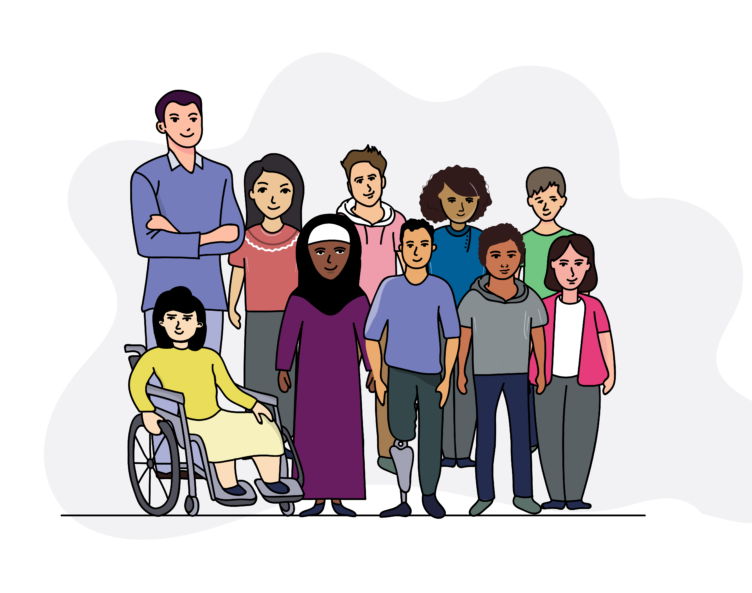Blog: Why are so many young refugees missing out on education?
In this blog, Diana Sutton, Director of The Bell Foundation, explores brand new evidence on the experience of young refugees arriving later into the education system and what urgent policy changes are needed.
Recent years have seen schools welcoming refugees from all over the world, including from Syria, Hong Kong, Afghanistan, and Ukraine. Many of these young people are so called “late arrivals”, children and teenagers who arrive later into the education system, typically from key stage 3 onwards.
Through The Bell Foundation’s work with schools and teachers, we know only too well the challenges that these young people face: arriving in a new education system, with an unfamiliar language of instruction. Becoming proficient in the English required for academic proficiency takes over six years. This means that the time a pupil arrives in the school system makes all the difference to their attainment. If a pupil arrives in reception, they will likely have developed their proficiency in English and caught up with their first language English speaking peers by the time they reach secondary school. The later the arrival, the less time they have available to catch up.
The research, published today by Refugee Education UK and The Bell Foundation, is a valuable addition to the evidence base, providing a unique insight into the experience of young refugees arriving in the UK and trying to access education and a school or college place.
Here I take a look at some of the key findings and crucially, what they mean for public policy.
Young refugees can remain out of education for up to a year
Drawing on the experiences of more than 400 individuals, the research found that teenage refugees in the UK are often being denied their right to education. Many are facing an education limbo, with some remaining out of education for up to a year.
Those arriving later in year 11 are particularly impacted, being both unable to access a school place, and typically also being too young to access further education. As a result, not only are these young people missing vital months of education without a supportive school environment, they are also at risk of negative impacts on their wellbeing and safety.

“[Y]oung people - particularly unaccompanied young people - are particularly vulnerable to victimisation, trafficking and exploitation, the lack of a structured environment, positive activities and safe adults (e.g. in education settings) does nothing to prevent any of this”A survey respondent working in the charity sector
Young refugees are facing multiple barriers to education
The research sheds much-needed light on the barriers to accessing meaningful education for these young people. These include uncertainty around their accommodation (including issues relating to uncoordinated dispersal practices), and concerns from schools of the potential negative impact on performance tables from taking children who are new to the UK school system. In this education vacuum, many young people are relying, instead, on temporary, informal provision run by charities and voluntary groups.

“[We have] just lost about five or six of them. There’s a local hotel that’s being shut down and they’re not there anymore. They’ve all been disbanded to various parts of the country [...] They just get up and moved with about 24-48 hours notice. It’s not good for them because they’ve built relationships with us. Their confidence is beginning [to improve]. English is improving just so much [...] It’s a real shame, they get moved on”Interviewee from an education institution on the impact of current dispersal practices
What needs to change?
These stark findings bring a renewed urgency to the Government’s efforts to tackle school absences post pandemic, with a new Children’s Wellbeing Bill announced to address school absences.
Policy change is needed to ensure that refugee children, regardless of their time of arrival, receive the effective support they need and are entitled to. In their new report, REUK calls for action from Government, local authorities, and educational institutions to ensure that displaced children have access to education. This includes a new intentional and coordinated approach to integrate young refugees who arrive later in the school system, monitoring and tracking access to education for displaced young people, and measures to reduce the educational impact of dispersal.
Alongside this, there is a need for guidance, training, resourcing, and sharing of good practice amongst schools. I gave evidence to the Education Select Committee inquiry into school absences last year about how speaking English as an Additional Language (EAL) combined with refugee status is a key factor in absence from mainstream classrooms, often due to a lack of school places. Moreover, while multilingual classrooms are now the norm (with one in five pupils speaking EAL), years of funding cuts and an EAL policy vacuum have left schools feeling unprepared to support pupils from refugee backgrounds, contributing to an increasing use of “withdrawal practices”.
Urgent action is now needed to ensure that schools receive the support they need, and that this group of children are able to access the education they are entitled to.




